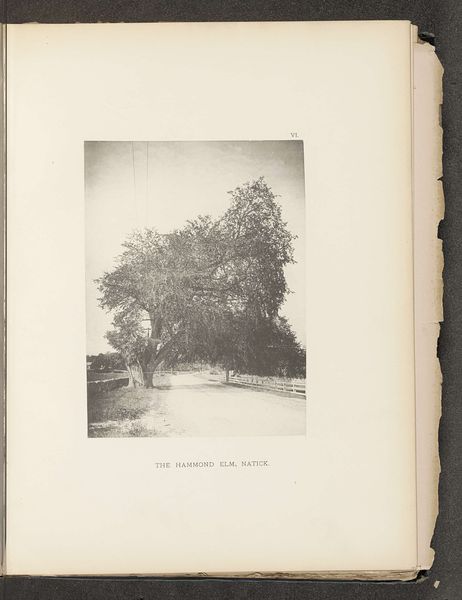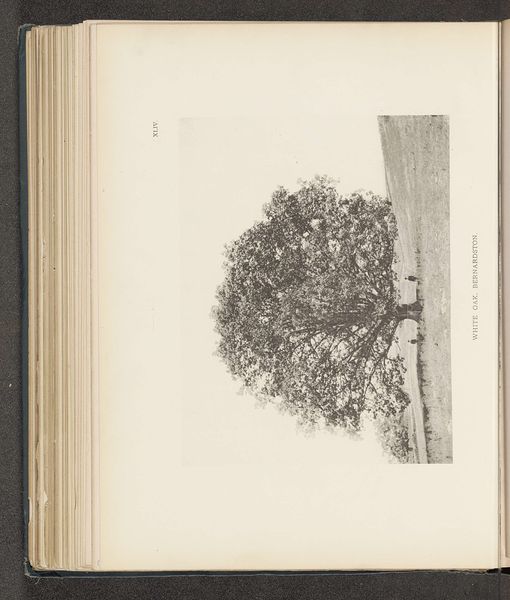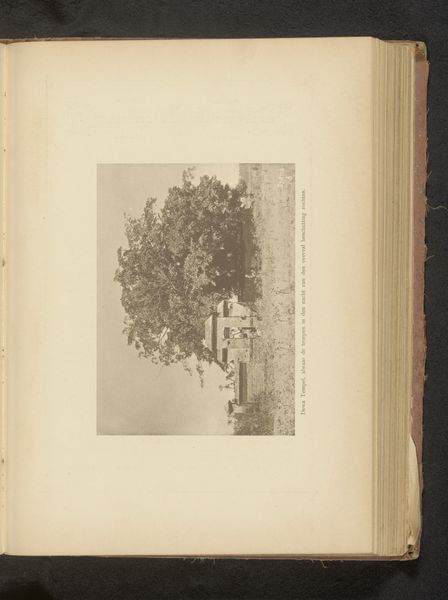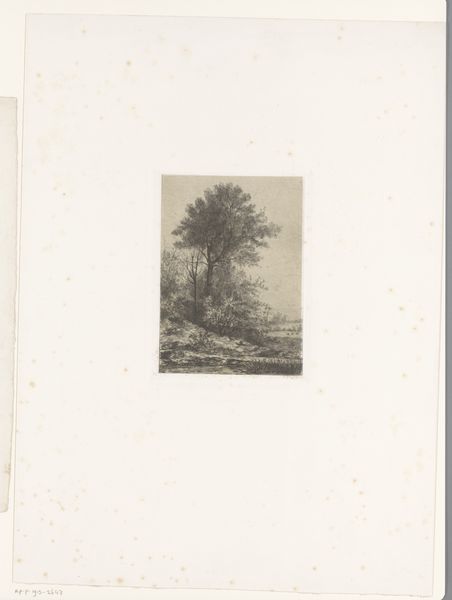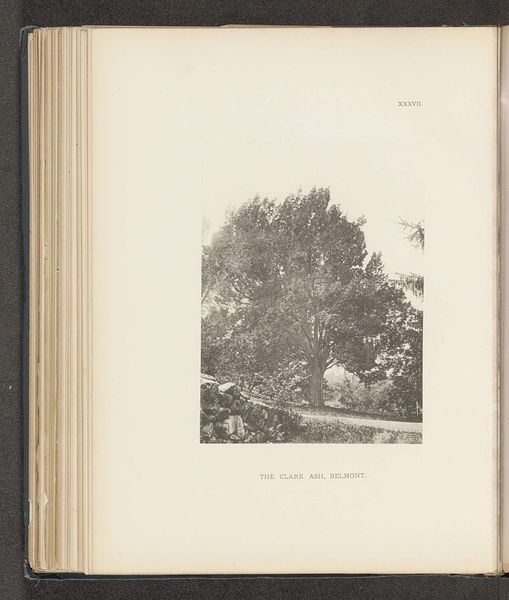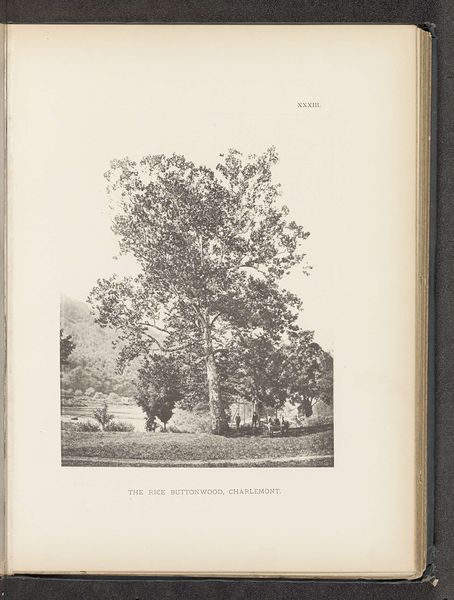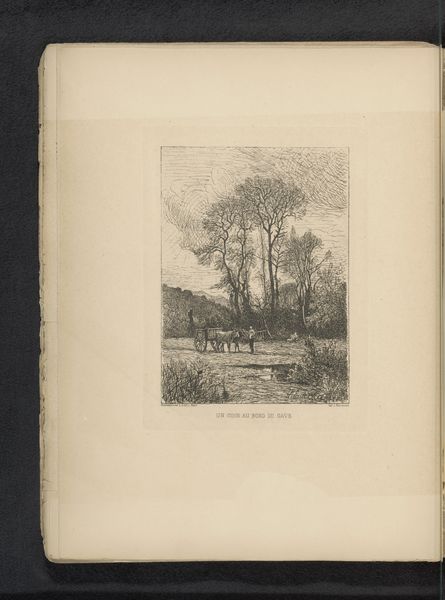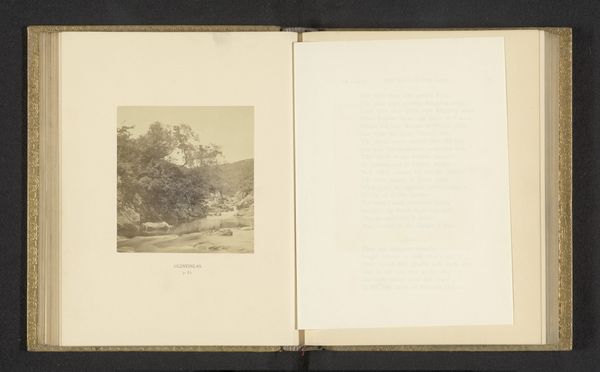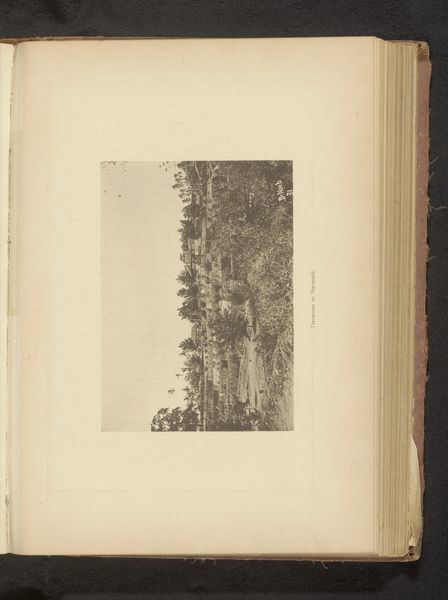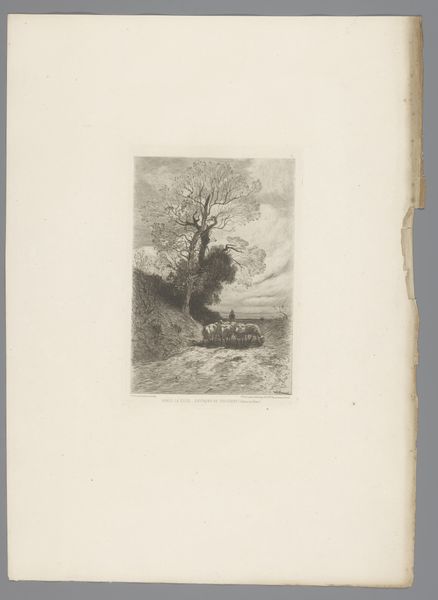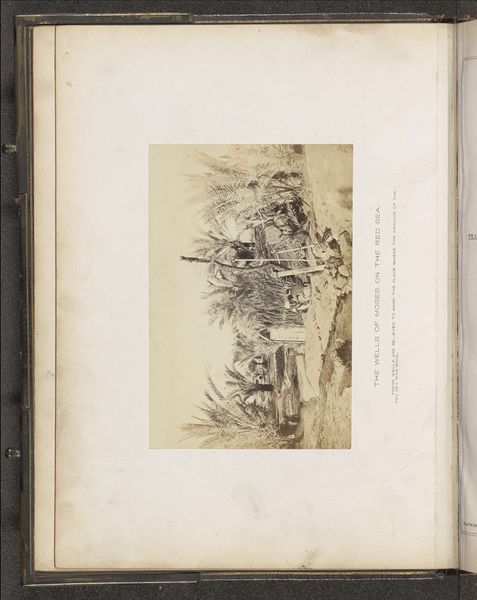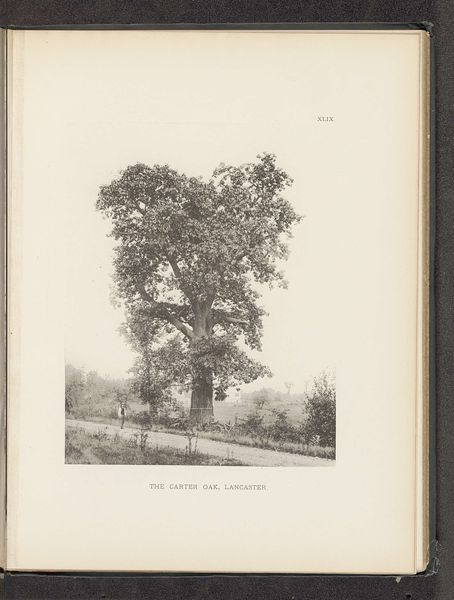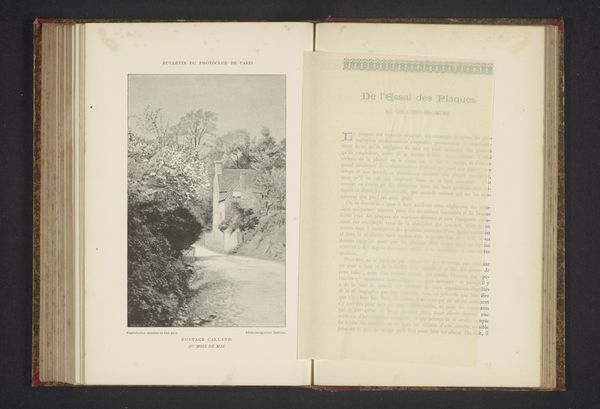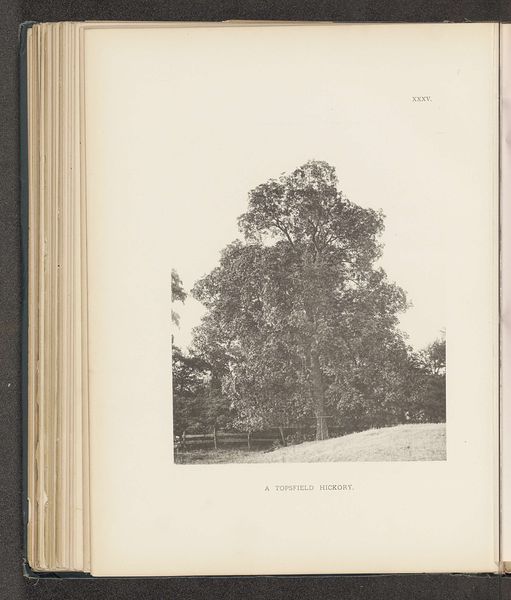
photography, albumen-print
#
landscape
#
photography
#
orientalism
#
albumen-print
Dimensions: height 100 mm, width 82 mm
Copyright: Rijks Museum: Open Domain
Editor: This albumen print, "Persoon vult een waterton in Wadi Feiran," was created around 1850-1865 by Francis Frith. It depicts a figure filling a water skin in a Middle Eastern landscape. It has a quiet, almost reverential quality. What do you see in this photograph, from a historical perspective? Curator: This photograph exists within a complex historical framework. It represents both landscape and orientalism, making it indicative of the West’s fascination with, and often skewed representations of, the Middle East during that period. This piece participates in constructing a particular vision of this region for a European audience. Notice how the figure seems diminutive against the dramatic backdrop, which evokes a sense of vastness. Editor: So, the scale contributes to that sense of exoticism and the sublime, perhaps? Curator: Exactly. And think about the market for these images. They were bought, sold, and displayed. Photography made visual information widely available to public audiences. What kind of societal role might images such as this have played? Editor: Well, people may have used them to shape or confirm their views of foreign lands. Almost like visual propaganda, in a way? Curator: Precisely. And consider the ethical implications of representation. This image helped codify stereotypical views of "the Orient," so it may be beautiful but simultaneously problematic. Does this change how you view the image? Editor: Definitely. It makes me consider the artist's role and the cultural impact his work had on its original viewers – and the viewers of today. Thanks for shedding light on the history of the era this was made in. Curator: It also brings the art back to life when considering it beyond its face value.
Comments
No comments
Be the first to comment and join the conversation on the ultimate creative platform.
